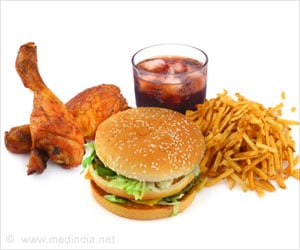High-fat diets can disrupt gut bacteria, leading to anxiety. Understanding this connection is crucial for maintaining overall health.
- Junk food diets alter gut bacteria and brain chemistry, potentially leading to anxiety
- Serotonin-related genes in the brain are affected by high-fat diets, contributing to anxiety-like responses
- Healthy fats from sources like fish and olive oil can support gut and brain health
High-fat diet, microbiome-gut-brain axis signaling, and anxiety-like behavior in male rats
Go to source). The study found that in animals, a high-fat diet disrupts gut bacteria, alters behavior, and influences brain chemicals in ways that fuel anxiety. "Everyone knows these are not healthy foods, but we tend to think about them strictly in terms of a little weight gain," said lead author Christopher Lowry, a professor of integrative physiology at CU Boulder. "If you understand that they also impact your brain in a way that can promote anxiety, that makes the stakes even higher."
A high-fat diet can alter brain chemistry, fueling anxiety. #guthealth #mentalhealth #medindia’
The Impact of High-Fat Diets on Gut Health
Lowry’s team conducted a study with adolescent rats, dividing them into two groups. Half received a standard diet with about 11% fat for nine weeks, while the other half consumed a high-fat diet of 45% fat, mostly from animal products. According to the Centers for Disease Control and Prevention, the typical American diet is about 36% fat.Throughout the study, researchers collected fecal samples and assessed the animals’ gut bacteria. After nine weeks, the animals underwent behavioral tests. The high-fat diet group not only gained weight but also showed significantly less diversity in their gut bacteria. Generally, more bacterial diversity is associated with better health. The high-fat diet group had more of a category of bacteria called Firmicutes and less of Bacteroidetes. A higher Firmicutes to Bacteroidetes ratio has been linked to the typical industrialized diet and obesity.
Additionally, the high-fat diet group showed higher expression of three genes involved in the production and signaling of the neurotransmitter serotonin, particularly in a region of the brainstem associated with stress and anxiety. While serotonin is often considered a “feel-good brain chemical,” certain subsets can, when activated, prompt anxiety-like responses in animals. Heightened expression of one of these genes, tryptophan hydroxylase (tph2), has been associated with mood disorders and suicide risk in humans.
“To think that just a high-fat diet could alter the expression of these genes in the brain is extraordinary,” said Lowry. “The high-fat group essentially had the molecular signature of a high anxiety state in their brain.”
The Gut-Brain Connection: How Diet Influences Anxiety
Lowry suspects an unhealthy microbiome compromises the gut lining, allowing bacteria to slip into the body’s circulation and communicate with the brain via the vagus nerve, a pathway from the gastrointestinal tract to the brain. “If you think about human evolution, it makes sense,” Lowry said. “We are hard-wired to notice things that make us sick so we can avoid those things in the future.”In summary, while it may be tempting to reach for comfort foods when stressed, it’s essential to consider the broader impact on your gut and brain health. A diverse, balanced diet can support both physical and mental well-being.
Reference:
- High-fat diet, microbiome-gut-brain axis signaling, and anxiety-like behavior in male rats - (https://pubmed.ncbi.nlm.nih.gov/38705984/)
Source-Medindia
















